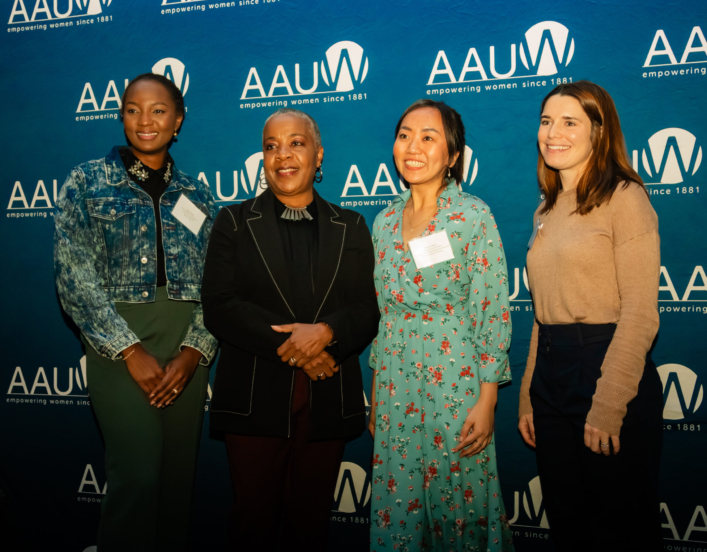3 Questions for Mary Phillips
Quick Tip
My biggest advice is to build a network, make connections, attend conferences, find allies and create a close-knit circle of people who can lift and support you. Get advice from people who know more than you.

As an undergraduate, Mary Phillips became fascinated with the Black freedom movement of the 1960s and 1970s, including the activism of the Black Panther Party. But her Black history courses rarely touched on the women who helped shape the Panthers, a group whose work has had a lasting impact on Black empowerment in the United States. That made her want to dig deeper.
“I became curious to learn more about these women, and it took on a life of its own,” says Phillips, Ph.D., a 2018-19 AAUW American Fellow.
She says it’s a misconception that women played a limited role in the Black Panther Party. “Indeed, they were the organizing strength of the organization.” Women served as community managers, orators, organizers, directors, writers, artists and more, Phillips says. “They taught political education classes, sold Panther newspapers, ran electoral campaigns and served on the [Party’s] central committee.”
Phillips, a professor at the City University of New York’s Lehman College, has focused her research on women, gender and radicalism in the modern black freedom struggle. Phillips’ book, A Spirit on a Sword: Gender, Resistance and the Black Panther Party, is the first biography of Ericka Huggins, a former high-ranking member of the party.
Who is Ericka Huggins, and what are the key themes of your book?
She served the Black Panthers in many capacities, working as a writer and editor of the Party newspaper and director of the Oakland Community School.
In 1969, she was imprisoned on charges of kidnapping, murder and the conspiracy to commit murder — crimes she didn’t commit. My book explores her day-to-day experience and acts of political dissent during her two-year incarceration. It provides new insights into how Huggins and other Panther women made meaning out of their time in prison. For example, Huggins coped by meditating, doing yoga, writing and building a women-centered community. In doing so, she contributed to both her own self-preservation and the wellness of other female prisoners.
Huggins has long advocated for teaching mindfulness in prisons, and she continues to promote restorative justice to this day. Her story highlights the important roles that spirituality and wellness practices can play in political movements.
What career advice would you give other women of color?
My biggest advice is to build a network, make connections, attend conferences, find allies and create a close-knit circle of people who can lift and support you. Get advice from people who know more than you. Don’t be afraid to ask for help when you need it. And remember self-care and wellness is critical, so set aside some personal time.
What do you see as the biggest challenge to the women’s movement?
In the U.S., women are often positioned as second-class citizens. Patriarchy is part of our social fabric. That means some women and men have been conditioned to normalize sexism — which makes feminist organizing a challenge and works against our progress as a nation.
Related
Fellowships & Grants

